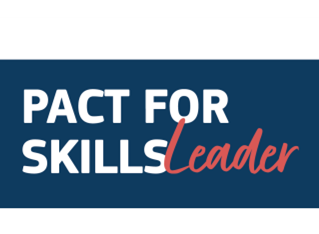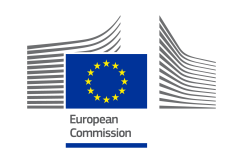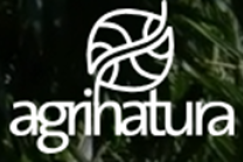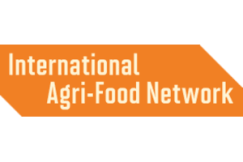Networks
23 June 2025
EU Agri-food Pact for Skills
Networks
23 June 2025
5. Sustained, inclusive and sustainable economic growth, employment and decent work for all
6. Sustainable value creation in the European food supply chain through partnership
Login / create an account to be able to react
-
7

The Pact for Skills, also called Large Scale Partnerships (LSPs) aims to get public and private organisations together and encourage them to make concrete commitments to upskilling and reskilling adults. The agri-food Pact for skills has been running since February 2022 and it has a growing community of more than 80 members.
European Commission - DG GROW
Topics
Albania
Armenia
Austria
Belgium
Bosnia and Herzegovina
Bulgaria
Croatia
Cyprus
Czechia
Denmark
Estonia
EU-27
Finland
France
Georgia
Germany
Greece
Hungary
Iceland
Ireland
Italy
Kosovo
Latvia
Liechtenstein
Lithuania
Luxembourg
Malta
Moldova
Montenegro
Netherlands
North Macedonia
Norway
Poland
Portugal
Romania
Serbia
Slovakia
Slovenia
Spain
Sweden
Switzerland
Türkiye
Ukraine
Other
Academic / Research and VET Institutions
Business Support Organisation
Company with 250 or more employees
Cluster Organisations
Consumer Organisations
Cultural and Heritage Organisations
Destination Management & Marketing Organisations
EU Institutions
Financial Institutions and Investors
Industry Associations and Chambers of Commerce
International Organisations
Local Authorities
Media / Journalist Organisations
National authorities
Networks and Federations / Confederations
NGOs / Non-profits
Notified Bodies
Regional Authorities
SMEs (a company with less than 250 employees)
Social Economy Entity
Trade Unions
Other
-
CoC aspirational objectives
-
-
5. Sustained, inclusive and sustainable economic growth, employment and decent work for all
-
6. Sustainable value creation in the European food supply chain through partnership
-
Share
The Pact for Skills aims to identify current and emerging skills needs in different sectors and regions through in-depth research and analysis. This enables the formulation of targeted policies and initiatives to bridge the gap between supply and demand. At the same time, the Pact emphasises the importance of providing accessible and high-quality upskilling and reskilling opportunities for individuals at all stages of their careers.
This involves developing flexible training programs, recognising prior learning, and promoting digital and soft skills. The European Commission, in collaboration with national and regional authorities, mobilises funding to support the development and implementation of skills-related projects, programs, and infrastructure. Additionally, private investments and innovative funding models are explored to maximise the impact and sustainability of the Pact. The Skills partnership for the agri-food ecosystem, represented by EU associations, organisations and social partners, national federations and associations, and businesses, commits to establishing a joint strategy to design and implement a sectoral education, training, upskilling and reskilling framework which maximises competitiveness of all actors involved, and enhances job attractiveness and retention. The agri-food Pact for skills has been running since February 2022 and it has a growing community of more than 80 members. The pact is coordinated by FoodDrinkEurope and Copa-Cogeca sectoral associations with the support of the Commissoin, it includes a wide range of partners such as companies, training providers, and public authorities.
The Pact has a document summarising their main commitments for the agrifood sector (attached).
It also has two websites: An European Commission website, and the Stakeholders agri-food Pact for skills website.
|
Documents
Comments (0)
Related content
See also
-
8
Agrinatura
- Categories
- 2. Prevention and reduction of food loss and waste 3. A climate - neutral food chain in Europe by 2050 4. An optimised circular and resource-efficient food chain in Europe +3 more
-
22
EIT Food
- Categories
- 2. Prevention and reduction of food loss and waste 3. A climate - neutral food chain in Europe by 2050 4. An optimised circular and resource-efficient food chain in Europe +3 more
-
11
International Agri-Food Network (IAFN)
- Categories
- 2. Prevention and reduction of food loss and waste 3. A climate - neutral food chain in Europe by 2050 4. An optimised circular and resource-efficient food chain in Europe +3 more





